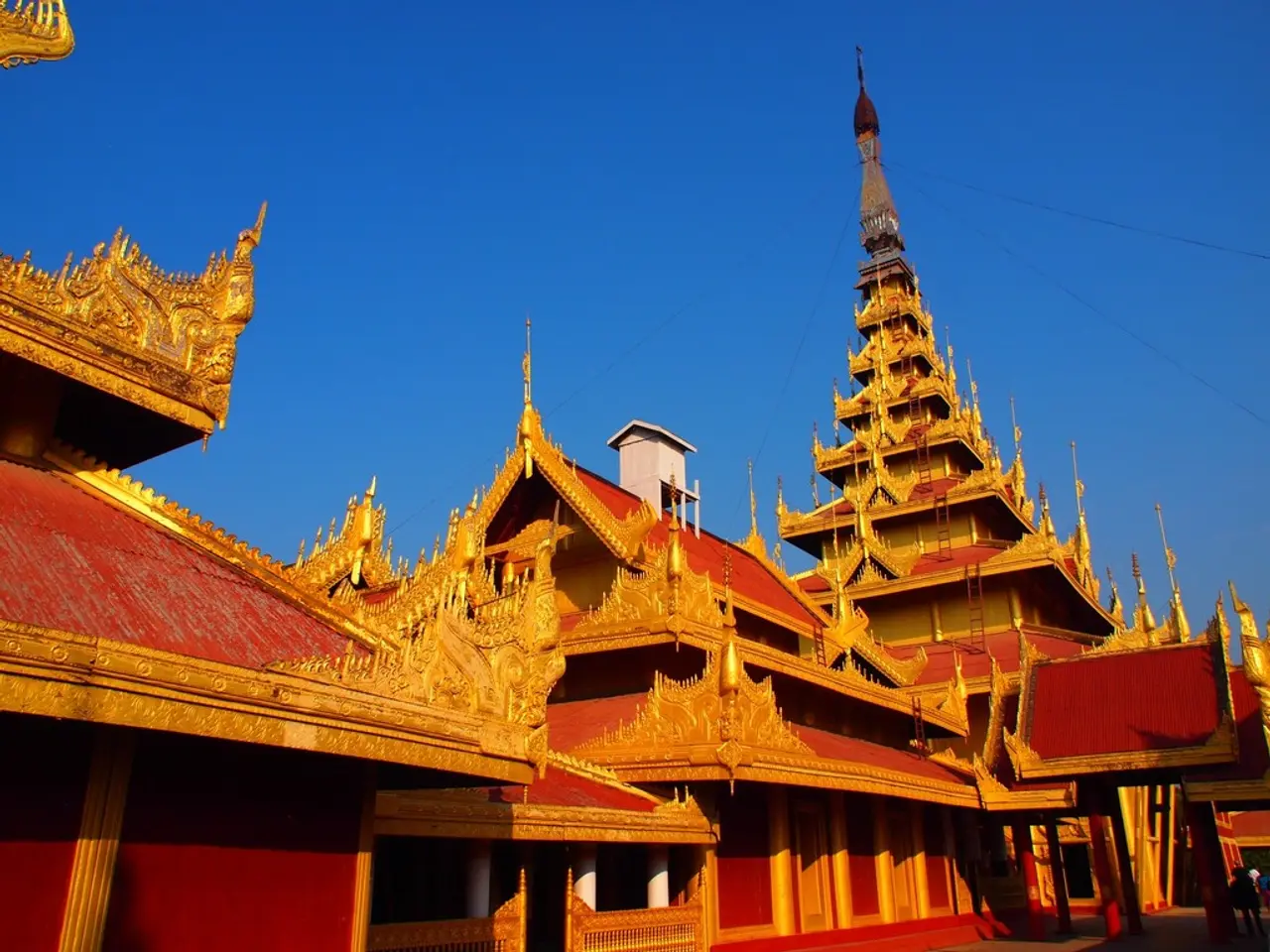Authorities of the military junta are rebranding, aiming to conduct elections, yet a UN investigation reveals an escalation of brutal actions.
The upcoming general elections in Myanmar, scheduled for December 2025 and January 2026, are met with widespread scepticism and rejection. The military junta, which seized power in 2021, is accused of orchestrating these elections as a tool to consolidate its grip on power amidst an ongoing conflict and human rights violations.
According to Mi Kun Chan Non, a women's activist, the military has "sucked all the resources and money than can" and has left the education system, healthcare system, and business in shambles. The National Unity Government (NUG), an exiled administration, has urged the people to "oppose and resist" participating in the planned elections, stating that the junta "does not have the right or authority to conduct elections."
Independent analysts, human rights organizations, and the international community, including the United Nations and Human Rights Watch, expect the elections to be neither free nor fair. This view is reinforced by the military’s arrest and replacement of the civilian-appointed Union Election Commission chair with a former military general, raising concerns about impartiality.
The military's 2008 Constitution structurally guarantees it significant power, including a quarter of parliamentary seats, veto rights, and control over key ministries, which undermines electoral fairness and civilian governance prospects. The 2025 elections will likely face disruptions due to ongoing civil war and significant opposition control of large parts of the country, forcing cancellations or insecure voting conditions in many constituencies.
Key pro-democracy actors such as Aung San Suu Kyi’s National League for Democracy (NLD) have been banned from participation, and groups aligned with the National Unity Government (NUG) view the junta as terrorists and reject the legitimacy of the electoral process. The junta has also enacted harsh laws, including one criminalizing disruption of elections with penalties up to the death sentence, and another restricting internet freedoms.
The international community broadly condemns the elections. Bodies like International IDEA and the International Trade Union Confederation (ITUC) denounce the process as a strategic ploy to give a veneer of legitimacy to military rule, cautioning that these are not genuine democratic exercises but attempts to undermine legitimate democratic institutions and the pro-democracy movement.
The military junta has been accused of atrocities and systemic torture since taking power in 2021, contributing to a civil war with thousands of casualties and millions displaced. These grave human rights abuses further erode any credibility the junta’s elections might have in the eyes of the international community.
In summary, the 2025-2026 Myanmar elections are orchestrated by the military to consolidate its grip on power amidst an ongoing conflict and widespread human rights violations. These elections are broadly rejected by both domestic opposition and most international observers as neither free nor fair.
The junta's notoriety is only growing, with the United States and most Western countries never recognizing the junta as the legitimate government of Myanmar. The military has imposed martial law in over 60 townships, giving it increased powers in resistance strongholds. A new cybercrime law expands the regime's online surveillance powers, banning unauthorized use of VPNs and targeting users who access or share content from prohibited social media sites.
The election, to be held in stages over December 2025 and January 2026, is resoundingly regarded as a sham and a tool used by the junta to give it a veneer of legitimacy. One of the country's most powerful ethnic armed groups, the Arakan Army, has said it will not allow elections to be held in territories it controls. Children as young as two years old have been detained in place of their parents and some have been abused and tortured. Many citizens could be casting their votes in an active conflict zone or under the eyes of armed soldiers, leading to fears of more violence.
- The United Nations and Human Rights Watch expect the upcoming 2025-2026 elections in Myanmar to be neither free nor fair, given the military's control of key ministries and the arrest of the Union Election Commission chair.
- The Arakan Army, one of Myanmar's powerful ethnic armed groups, has stated that it will not allow elections to be held in territories it controls, adding to the disruptions expected during the vote.
- Crimes against children have been reported in Myanmar, with young children being detained in place of their parents and some experiencing abuse and torture, raising concerns about human rights violations during the elections.







